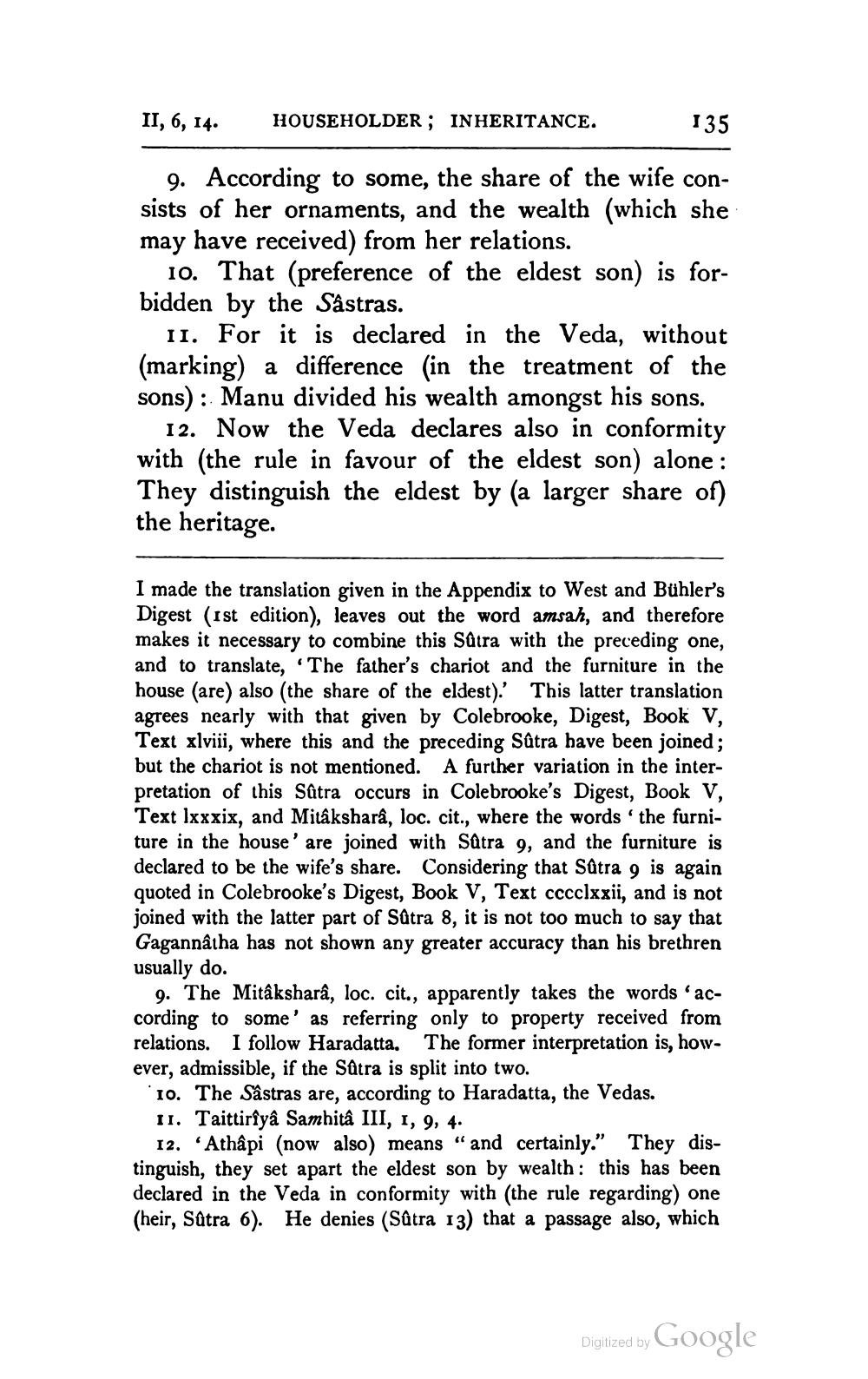________________
II, 6, 14.
135
9. According to some, the share of the wife consists of her ornaments, and the wealth (which she may have received) from her relations.
HOUSEHOLDER; INHERITANCE.
10. That (preference of the eldest son) is forbidden by the Sâstras.
II. For it is declared in the Veda, without (marking) a difference (in the treatment of the sons): Manu divided his wealth amongst his sons.
12. Now the Veda declares also in conformity with (the rule in favour of the eldest son) alone: They distinguish the eldest by (a larger share of) the heritage.
I made the translation given in the Appendix to West and Bühler's Digest (1st edition), leaves out the word amsah, and therefore makes it necessary to combine this Sûtra with the preceding one, and to translate, 'The father's chariot and the furniture in the house (are) also (the share of the eldest).' This latter translation agrees nearly with that given by Colebrooke, Digest, Book V, Text xlviii, where this and the preceding Sûtra have been joined; but the chariot is not mentioned. A further variation in the interpretation of this Sûtra occurs in Colebrooke's Digest, Book V, Text lxxxix, and Mitâksharâ, loc. cit., where the words 'the furniture in the house' are joined with Sutra 9, and the furniture is declared to be the wife's share. Considering that Sûtra 9 is again quoted in Colebrooke's Digest, Book V, Text cccclxxii, and is not joined with the latter part of Sûtra 8, it is not too much to say that Gagannatha has not shown any greater accuracy than his brethren usually do.
9. The Mitâksharâ, loc. cit., apparently takes the words 'according to some' as referring only to property received from relations. I follow Haradatta. The former interpretation is, however, admissible, if the Sutra is split into two.
10. The Sâstras are, according to Haradatta, the Vedas. 11. Taittiriyâ Samhitâ III, 1, 9, 4.
12. 'Athâpi (now also) means "and certainly." They distinguish, they set apart the eldest son by wealth: this has been declared in the Veda in conformity with (the rule regarding) one (heir, Sûtra 6). He denies (Sûtra 13) that a passage also, which
Google
Digitized by




